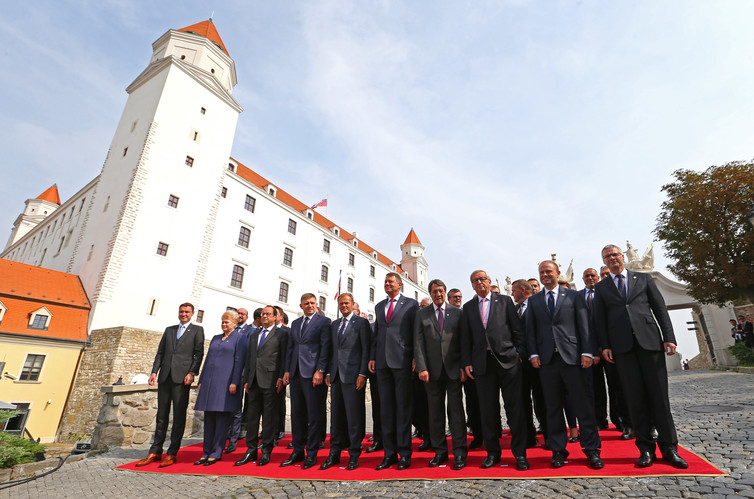-
Tips for becoming a good boxer - November 6, 2020
-
7 expert tips for making your hens night a memorable one - November 6, 2020
-
5 reasons to host your Christmas party on a cruise boat - November 6, 2020
-
What to do when you’re charged with a crime - November 6, 2020
-
Should you get one or multiple dogs? Here’s all you need to know - November 3, 2020
-
A Guide: How to Build Your Very Own Magic Mirror - February 14, 2019
-
Our Top Inspirational Baseball Stars - November 24, 2018
-
Five Tech Tools That Will Help You Turn Your Blog into a Business - November 24, 2018
-
How to Indulge on Vacation without Expanding Your Waist - November 9, 2018
-
5 Strategies for Businesses to Appeal to Today’s Increasingly Mobile-Crazed Customers - November 9, 2018
Hollande: France ‘cannot be alone’ on EU defense
Slovakia-European Union leaders are gathering here in a bid to overcome deep divisions over the future of Europe, in the first extended meeting of the 27 nations that will make up the EU after the United Kingdom leaves it.
Advertisement
“We need solutions for Europe and we are in a critical situation”, Merkel said as she arrived at the gathering.
Slovak Prime Minister Robert Fico, who is hosting the summit, said all wanted unity but a “very honest” exchange of views was needed to make that possible.
But EU countries are deeply divided on the migration issue, with the central and eastern European countries deeply opposed to taking quotas of refugees as demanded by the EU, and blaming Germany for the migrant crisis.
Stepping into the fray, France and Germany, the EU’s power couple, have prepared plans for a “more active” defense policy to restore confidence shaken by terror attacks, the migrant crisis and globalization.
They will pledge closer defence cooperation and agree to bolster security along the EU’s external borders, as well as discussing new initiatives to generate growth and jobs.
European Council president Donald Tusk revealed the timetable for Brexit at a meeting yesterday in Bratislava of the leaders of the 27 countries that will remain EU members.
Indeed, earlier this week, Jean-Claude Juncker, the European Commission president, called for a headquarters for a common EU military to complement NATO-and with the U.K.’s absence from the summit there will be no opponent of such a force. Some defence measures could be signed off at a full European Union summit with Britain in December.
Tusk, the European Council president, then briefed them over lunch during a cruise on the Danube on where things stand with Britain.
“All these will be worked out until the end of the year and we want to make concrete progress until the 60th anniversary of the Treaty of Rome in March 2017”, Merkel said.
She said: “We need to be able to protect our external borders”.
Fico previously vowed that “Slovakia will not accept one single Muslim migrant” and his country has pursued legal action against the European Union to ensure it doesn’t happen.
First of all let me thank Prime Minister Fico for inviting us to Bratislava.
Dutch Prime Minister Mark Rutte, though, insisted such internal quarrels have always been there.
Through the forum of the Visegrad group – an informal alliance of Poland, Hungary, the Czech Republic and Slovakia which meets regularly before summits – these countries are becoming an increasingly powerful voice.
“We committed in Bratislava to offer to our citizens in the upcoming months a vision of an attractive European Union they can trust and support”. Hungary, Poland, Slovakia and the Czech Republic will instead use the Bratislava summit to call for a strengthening of European Union security, better control of its southern borders and protection of free movement, Czech Prime Minister Bohuslav Sobotka said on his way into the meeting.
The leaders are not expected to discuss in any detail their looming divorce negotiations with Britain, which are likely to hang over the bloc for years, sapping resources, attention and threatening further divisions.
Advertisement
Pressure is mounting among several prominent member states, after Luxembourg’s foreign minister attacked Hungary, saying they should be thrown out for their treatment of asylum seekers.





























